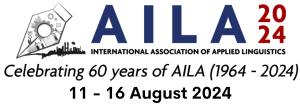AP DR Ruanni Tupas
UCL Institute of Education (UK)
Ruanni Tupas: Strategies of (Imperial) Forgetting in Applied Linguistics
In this paper, I call for a critical historiography of our field where we examine the historical underpinnings of our work which are discursively embedded in our writing. My argument is not simply a plea to historicise the study of language or discourse. My core point is that some applied linguistic research is built on colonial versions of history, thus language research generally makes recommendations on language distribution, policy and practice with these versions embedded in the justifications. Language policy, for example, is embedded in imperial forgetting, thus it has taken the shape it has because of this. In this case, the colonial language ‘entered’ the colonies, rather than was imposed through brute force and assimilative mechanisms, thus the ‘mixed’ blessings of colonialism brought enlightenment and modernity to the colonized. I draw in my work on a historiography of Philippine applied linguistics but will also draw connections with some work in other parts of the world (Yabes, 1970; Gonzalez, 1980; see Loh, 1998). Thus, as applied linguists we do not simply go ‘back’ to history to nuance our work but, more importantly, unpack and surface the versions of history we take in our research. What do we forget and what do we remember in our work? Indeed, this demands a critical historiography which traces such politics of memory in the historical role of power dynamics in the making and remaking of history.
Gonzalez, A. (1980). Language and Nationalism: The Philippine Experience Thus Far. Quezon City: Ateneo de Manila.
Loh, K. S. (1998). Within the Singapore story: The use and narrative of history in
Singapore. Crossroads: An Interdisciplinary Journal of Southeast Asian Studies, 12(2), 1–21.
Yabes, L. (1970). The English program in the university. Education Quarterly 18(1&2), 15–33.
Keywords: Language and colonialism, historical memory in applied linguistic, coloniality of applied linguistics, critical historiography

